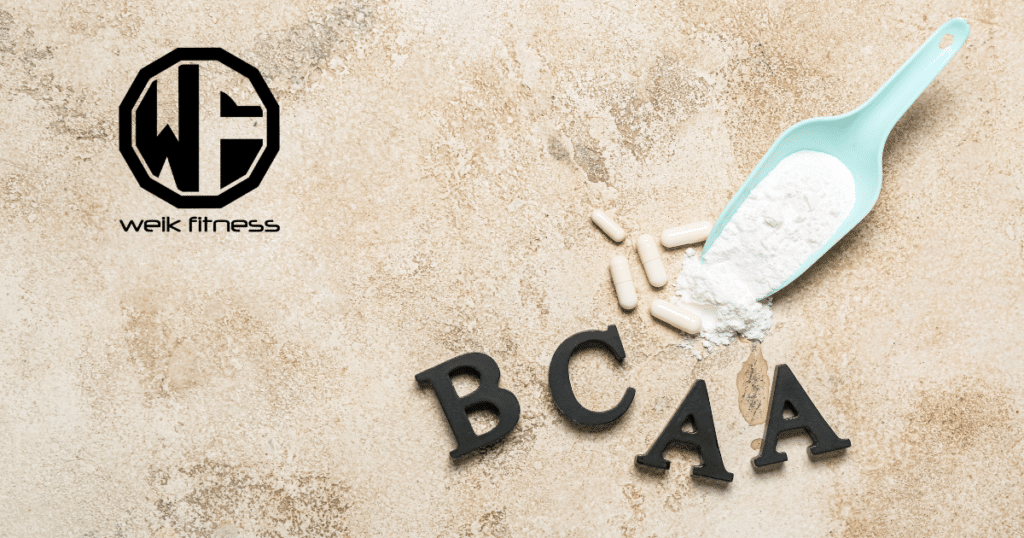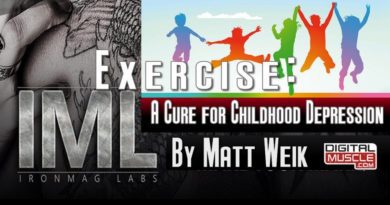Proper Recovery: It Can Make or Break Your Results
Many are under the impression that the work done inside the gym is the most important part when it comes to seeing results. While indeed it plays a role, the role isn’t as large as one might assume. In fact, it’s what you do outside of the gym through proper recovery that truly determines how quickly or how slowly you see the fruits of your labor.
Your body needs time to rest, recover, refuel, and rebuild. All of this can be accomplished by getting enough sleep, giving each body part adequate rest before hitting it again in the gym, and feeding your body the nutrients it needs to function optimally. When you combine all of these things, you set yourself up for success through proper recovery. However, when you are missing even just one piece of that puzzle, it can considerably slow down your progress.
Disclaimer: This article is for informational purposes only and is not meant to treat or diagnose any condition. It is recommended that you speak with your doctor before starting any exercise program, changing your daily nutrition, or adding any supplements to your regimen.
Table of contents

Why is Proper Recovery Important Following Workouts?
Proper recovery following workouts is crucial for several reasons, encompassing both physical and mental aspects. Here are some key factors that highlight the importance of proper recovery:
1. Muscle Repair and Growth
During exercise, especially resistance training, muscle fibers experience microtears. Recovery allows these muscles to repair and grow stronger. Without adequate recovery, muscles remain in a state of breakdown, leading to decreased performance and potential injury.
2. Prevention of Overtraining Syndrome
Overtraining syndrome occurs when there is insufficient recovery time between intense workout sessions. Symptoms include persistent fatigue, decreased performance, irritability, and increased risk of injuries. Proper recovery helps prevent this by allowing the body to fully recuperate.
3. Replenishment of Energy Stores
Exercise depletes glycogen stores in muscles. Adequate recovery, including proper nutrition, helps replenish these energy stores, ensuring that the body has enough fuel for future workouts and daily activities.
4. Reduction of Muscle Soreness
Recovery practices such as stretching, foam rolling, and light activity can help reduce delayed onset muscle soreness (DOMS), which is the muscle pain and stiffness experienced after intense exercise. This allows for more consistent training and better overall performance.
5. Hormonal Balance
Intense exercise impacts the body’s hormonal balance, increasing levels of stress hormones like cortisol. Proper recovery helps restore hormonal equilibrium, reducing stress and promoting overall well-being.

6. Mental Recovery and Stress Reduction
Exercise places not only physical but also mental demands on the body. Recovery helps reduce mental fatigue and stress, improving focus, motivation, and mental health.
7. Immune System Support
Intense exercise can temporarily suppress the immune system. Adequate recovery helps the immune system recover and function optimally, reducing the risk of illness and infection.
8. Improved Sleep Quality
Recovery periods, especially when combined with good sleep hygiene practices, enhance the quality of sleep. Quality sleep is essential for muscle recovery, cognitive function, and overall health.
9. Enhanced Performance and Adaptation
Regular recovery allows the body to adapt to training stimuli more effectively, leading to improved strength, endurance, and overall athletic performance. This adaptation is crucial for making progress and achieving fitness goals.
10. Injury Prevention
Without proper recovery, the risk of injuries such as strains, sprains, and stress fractures increases. Recovery helps maintain muscle and joint health, flexibility, and overall physical resilience.
Effective Strategies for Proper Recovery

- Rest Days: Incorporate rest days into your training schedule to allow full recovery.
- Sleep: Aim for 7-9 hours of quality sleep per night.
- Nutrition: Consume a balanced diet rich in proteins, carbohydrates, and healthy fats to support muscle repair and energy replenishment.
- Hydration: Stay hydrated to support overall bodily functions and recovery processes.
- Active Recovery: Engage in light activities like walking, yoga, or stretching to promote blood flow and reduce stiffness.
- Professional Treatments: Consider massage therapy, physiotherapy, or other professional treatments to aid recovery.
Tips to Achieve Proper Recovery and Rest
- Strive to get at least seven hours of sleep every night. Anything less and the quality of sleep you get can be effected.
- Do not hit the same body part on consecutive days—meaning, if you must hit the same body part to force change, do not do so on back to back days. Leave at least one day in between to rest the muscle group and allow the muscle fibers to be rebuilt and properly refueled.
- Fuel your body with high-quality macronutrients—carbohydrates, proteins, and fats are all important to your overall success when it comes to reaching your health and fitness goals. Adjust your macro ratios according to the results you desire (fat loss or gain lean muscle).
- If you are finding it difficult to hit your macronutrients for the day, consider a supplement such as a protein powder if you cannot take in enough protein in your diet from whole food sources.
Maximize Your Results and Support Proper Recovery with the Help of BCAAs

First, let’s talk about amino acids. Amino acids are the building blocks of protein. Protein is what helps build lean and strong muscles. When you exercise, the body demands energy and can enter a catabolic state where it can break down your hard-earned muscle mass to fuel itself. The amino acids in the muscle can help fuel your body, which is counterproductive to your goal of preserving and building quality lean muscle mass. When there is an ample supply of amino acids in the body, it can pull from the stores rather than breaking down the tissue itself. This is where BCAAs come into play.
BCAAs are a little-known gem that has been helping fast-track the recovery process of many for years. BCAAs are branched chain amino acids and are comprised of leucine, isoleucine, and valine. These three amino acids account for as much as 33% of your muscle tissue. Your body actually contains 20 different amino acids, but of that total, those three are extremely critical.
Click here to continue reading…


*Disclosure: This article may contain affiliate links or ads, which means we earn a small commission at no extra cost to you if you make a purchase through these links. These commissions help support the operation and maintenance of our website, allowing us to continue producing free valuable content. Your support is genuinely appreciated, whether you choose to use our links or not. Thank you for being a part of our community and enjoying our content.
PLEASE CONSIDER SHARING THIS ON YOUR SOCIAL MEDIA TO HELP OTHERS LEARN MORE ABOUT THIS TOPIC.





